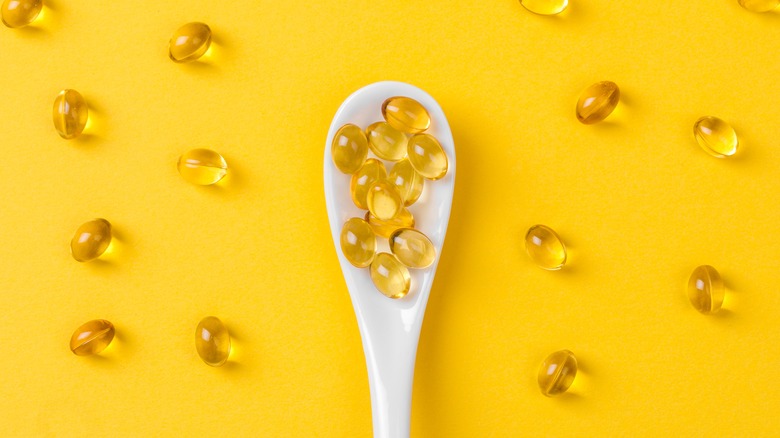Large-Scale Study Suggests Vitamin D Deficiency Can Impact Lifespan
While the human body is an incredible organic system capable of great potential, it is by no means perfect. For example, in order to grow and function properly, the body needs small doses of vitamins (per Medical News Today). Vitamins are natural substances that are predominantly found in food, though you can take a host of vitamin supplements now. There are 13 vitamins, and they are all considered essential. But, they are not required in the same amounts and can come from different sources. For example, vitamin D helps form healthy bones through the absorption of calcium, reports the National Institutes of Health. Beyond bone health, vitamin D also has anti-inflammatory properties and plays a role in the immune system, among many other vital bodily functions.
Notably, vitamin D is only available in select foods like fortified cereals and milks, as well as fish rich in fats like salmon and sardines (via Mayo Clinic). If you don't like dairy or fish, your body can produce it during a chemical process that results from exposure to direct sunlight on your skin. Of course, you can also take a vitamin D supplement, such as those found in a multivitamin. It is vital to get enough vitamin D, because deficiency can lead to a slew of issues ranging from brittle bones and weaker muscles to fatigue, says Cleveland Clinic. Now, a recent study shows that vitamin D deficiency may also be linked to an early death.
Can vitamin D help you live longer?
According to the National Institutes of Health, the average person needs a certain amount of vitamin D and there's a goldilocks range that's optimal. If you have too much vitamin D, or too little, it may cause problems with your health. For example, too little vitamin D can weaken your bones. The ideal amount of vitamin D — as measured by blood levels — is around 50 nanomoles per liter (nmol/L) or greater. A 2022 study published in the journal Annals of Internal Medicine reviewed levels of vitamin D in over 307,000 white European participants in addition to genetic information.
The researchers found that the risk for mortality "decreased steeply with increasing concentrations until 50 nmol/L." Findings of the study suggest that vitamin D deficiency related to a genetic predisposition increased the odds of dying in general by 25% when compared to healthy participants. More specifically, those with a genetic predisposition for vitamin D deficiency had an increased risk of death from conditions related to the lungs by 96%, conditions related to the heart by 25%, and conditions related to cancer by 16%, reports U.S. News and World Report. Notably, the odds of death increased with the greater amount of vitamin D deficiency.


